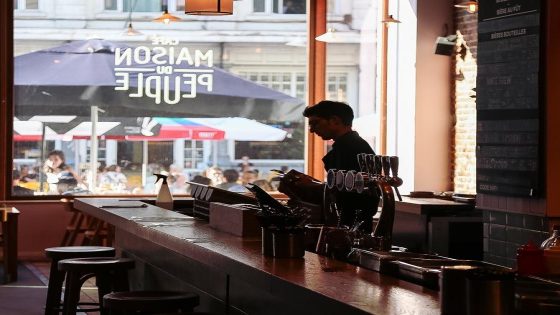On February 12, 2025, the Belgian government announced plans to tackle ‘wurgcontracten’ or strangling contracts in the hospitality industry. This move comes after the closure of iconic cafes like Daringman due to unfair rental agreements. How will these changes impact café owners and their relationships with suppliers?
- Café owners need better lease regulations.
- Daringman café closed due to unfavorable terms.
- Dominance of brewers in café contracts increasing.
- New government agreement aims to ban abusive clauses.
- Libertap advocates for fair brewery contract legislation.
Belgium’s New Measures Against Strangling Contracts in Hospitality
What does this mean for café owners? The recent actions by the Belgian government could reshape how cafés operate. With increasing pressure from suppliers enforcing strict conditions, many cafés are struggling to survive. Will these new regulations provide a lifeline for struggling businesses?
The Impact of Supplier Dominance on Local Cafés
Café owners are facing mounting challenges as suppliers gain more control over rental agreements. This trend can lead to unfair practices that jeopardize local businesses. Here’s what you need to know:
- Cafés like Daringman have closed due to unfavorable contract terms.
- Suppliers often impose conditions that restrict purchasing flexibility.
- The government is looking to create laws that protect café operators.
- This issue highlights the need for fair business practices in the industry.
Understanding Strangling Contracts: What Are They?
Strangling contracts refer to agreements where suppliers impose restrictive conditions on café owners, limiting their ability to source products freely. These contracts can include mandatory purchasing from specific suppliers or penalties for not meeting sales quotas. Such practices threaten the viability of independent cafés and diminish consumer choice.
The Role of Government Regulations in Protecting Businesses
The Belgian government’s proposed regulations aim to dismantle these unfair practices by prohibiting certain clauses in rental agreements. By ensuring that both parties—suppliers and café owners—are treated equally, these measures seek to foster a healthier business environment. Could similar regulations benefit small businesses elsewhere?
The Future of Café Culture in Belgium
If successful, these initiatives could revitalize Belgium’s vibrant café culture by empowering local entrepreneurs and ensuring fair competition among suppliers. As consumers increasingly support local businesses, will we see a resurgence of beloved neighborhood cafés thriving once again?
This movement towards fairness not only impacts Belgium but also serves as an important lesson for other countries grappling with similar issues in their hospitality sectors.
































